Understanding Sleep Better - Second Edition: What's Oversleeping & It's Effects, What's Microsleeping & Is it Bad For Us And More...
Hello steemians and friends, this is the part 2 and final edition of Understanding Sleep Better, yea, Part 2, there was so much I wanted you all to know about sleep but part 1 was already to lengthy, so I decided for the first time to write a second edition on a topic(can I hear you guys clap, winks, smiles). I'm really glad you guys enjoyed the first edition and this second edition, is gonna be very informative, educative and fun to read. For those of you that didn't it read the first editon, click here to check it out.
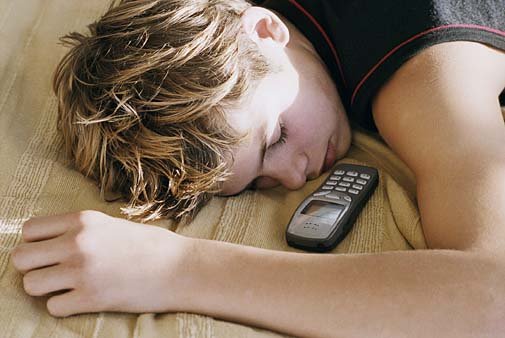
From the first edition, a steemian who goes by the name, @rharphelle, asked me a very good question, Is Oversleeping Bad For Our Health?, is it? I guess you better read on to find out.(smiles). What is microsleep? and is it good for us? Does sleep deprivation and drunkenness have similar effect on our brain? All these questions and more would be crashed out in this article. So find somewhere quiet and get yourself comfortable as you read through this awesome article I made just for you(smiles).
Before I begin, I should reminder you guys again that sleep is the most important factor for good health, surpassing diet and exercise, hence it should be taken seriously.
Oversleeping
After reading my first edition of Understanding Sleep Better, some of you might begin to consider oversleeping, because the effects of sleep deprivation I gave you guys might just scare some of you, and just maybe, oversleeping might be the way to safeguard yourself. And some other people, who have already oversleeping before reading that article, would be glad, because they might have been looking for some reasons to justify their oversleeping nature and that article only spoke about sleep deprivation. I'm sorry to spoil that awesome idea in your head(smiles), because this article would make you reconsider oversleeping and help you out in some many ways.
Over the years of researching on different topics, I have come to realize, that in life, moderation is the key to good health. Over exercising yourself is bad for your health and not exercising enough is also bad for your health. Also, over eating is bad for health and not eating adequately is also bad for your health. But when you do things moderately, you get the optimum benefit from it. Same thing applies to sleep, if you are sleep deprived, it's bad for your health and if you oversleep, it's also bad for your health. So there is need to sleep moderately as recommended by the National Sleep Foundation]. Although, sleep needs varies from one person to another depending on their age and other factors, and that was why I gave you guys the recommended hours of sleep across all ages in the first edition. Just for a reminder, you can see it below;
| Age | Sleep Needs |
|---|---|
| Newborns (0–3 months) | 14 to 17 hours |
| Infants (4–11 months) | 12 to 15 hours |
| Toddlers (1–2 years) | 11 to 14 hours |
| Preschoolers (3–4 years) | 10 to 13 hours |
| School-age children (5–12 years) | 9 to 11 hours |
| Teenagers (13–17 years) | 8 to 10 hours |
| Adults (18–64 years) | 7 to 9 hours |
| Older Adults (65 years and over) | 7 to 8 hours. Source. |
For this article, we would only concern ourselves with adults(i.e 18 - 64 years) because that's where I think, most of us reading this article actually fall under(smiles).
We mostly hear about the negative effects of sleep deprivation and don't even concern ourselves with the effects of oversleeping, because it seems ideal right? Sleep actually helps us repair our body, flush out harmful chemicals from our brain, and restore our general health, so getting more than enough sleep seems like the best thing to do for one's self. But shockingly, oversleeping is more deadly than sleep deprivation, as it is associated with increased risk of cardiovascular diseases and deaths as compared to sleep deprivation. According to a research carried out by Keele University, the University of Manchester, the University of Leeds, and the University of East Anglia, it was revealed that oversleeping had a greater mortality and cardiovascular risk than sleep deprivation. From that same research, it was shown that, people who oversleep have 30% increased risk of dying as compared to people who are sleep deprived. The research also showed that people who oversleep have 56% increased risk of dying from stroke and 40% increased risk of dying from cardiovascular diseases. According to Chun Shing Kwok, the lead researcher;
This research began because we were interested to know if it was more harmful to sleep below or beyond the recommended sleep duration of seven to eight hours. We further wanted to know how incremental deviation from recommended sleep duration altered risk of mortality and cardiovascular risk. Our study has an important public health impact in that it shows that excessive sleep is a marker of elevated cardiovascular risk. Source
Also an Arizona State University Professor known as Shawn Youngstedt said;
The lowest mortality and morbidity is with seven hours. Source.
Some of you guys would be wondering, how many hours of sleep, does it take for someone to oversleep? It's simple, since the recommended hours of sleep for adults is 7 - 9 hours, hence, when you sleep over 9 hours, you have overslept. I don't mean a one time sleep of over 9 hours, what I mean is, when an individual is consistently sleeping over 9 hours every\day. Naturally, oversleeping affects about 2% of the entire world population. There are some causes of oversleeping which include; thyroid issues, depression, heart disease, sleep apnea, narcolepsy and other causes. Among these causes already mentioned, depression caught my attention the most, because it has led to the death of so many people and it's currently affecting a whole lot of people today.
Sleep And Depression And Their Relationship To A Refreshing Morning And Lack Of Willingness To Do Anything
We all know that depression is one of the worst feeling an individual could have, as he/she would lack the willingness to do anything and sometimes, even to live and that's why depressed people commit suicide. Human beings get depressed because we are worrying about some needs in our life which have not been fulfilled/met such as, not being successful at something, failure to keep a relationship, lose of status in life and so on. I know some of you are like, how is this related to sleep? It's related to sleep because as an individual begins to worry, that worrying creates an emotional arousal and that emotional arousal has to be released in the night of dreams i.e the REM stage sleep. And as we know, us, human beings spend about a quarter of our sleep time in REM stage sleep and in this REM stage sleep, the brain burns a lot of brain power or let me just simply say that, the brain burns a lot of energy. And whenever we are in the REM stage sleep (i.e dreaming) for too long or there is some kind of change in the balance of our other sleep stages to our REM stage sleep, our brain and body won't be refreshed in the morning as we wake up. And it has been known for some years now, that depressed people dream more intensely than people who ain't depressed. They(depressed people) keep worrying and having more REM stage sleep than normal and that makes them burn a lot of their brain power/energy which then makes their body and brain less refreshed when they are waking up. And that's why, depressed people are always waking up tired and less refreshed.
Depressed people usually lack motivation or willingness to do anything. Why is that? And how can that be related to sleep? It all comes back to dreaming again, when we dream or at the REM stage sleep, our brain burns a lot energy and as a result of that, we affect our Orientation Response i.e our orientation response becomes less active. What is it about orientation response? Our orientation response is that response that we need to do anything at all, like getting out of bed, doing our house/work/school duties, organizing or planning our day i.e we need our orientation response to carry out our normal activities of the day adequately. Our orientation response is what motivates us to do anything, it's what give us the purpose to live, and depressed people tends to have a very low orientation response because of their too much worrying which have to be released at their night sleep, therefore resulting to more intense dreaming which burns a lot of our brain power and affects their orientation response negatively, by making it less active, and that leads to lack of motivation/willingness to do anything and less purpose of living and when an individual lacks the purpose to live, such an individual might attempt suicide.
New research studies have shown that, sleep deprivation do go a long way to reducing the symptoms of depression and even in shorter periods such as within a week as against standard antidepressant therapies which takes several weeks. I suggest you read this article for more understanding on how sleep deprivation can fight off depression. According to a review in Current Psychiatry Reports;
Therapies that manipulate sleep can significantly improve depressive symptoms. Source
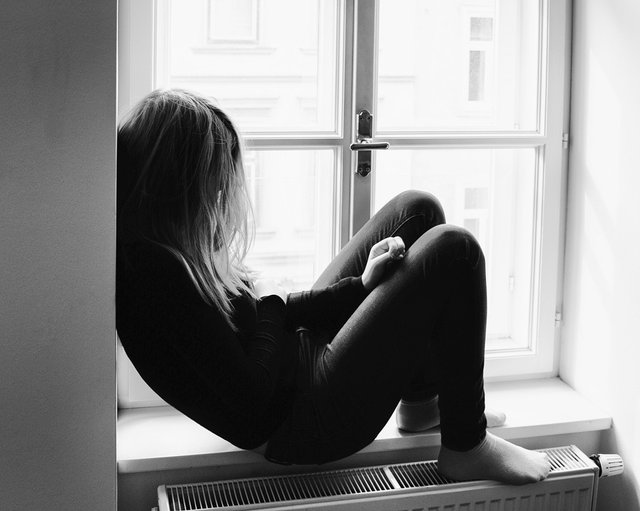
How Bad Is Oversleeping To Our Brain, Body And General Health
As I earlier mentioned from the research carried out by those universities, oversleeping is more deadly than sleep deprivation and it has an increased risk of death, cardiovascular diseases and stroke. But there are still so many negative effects of oversleeping which I would share with you guys. Here we go;
1. Oversleep Affects Fertility
Oversleeping affects the fertility rate in women. From a study of some Korean women, it was revealed that, women that sleep less than 6 hours have about 46% chance of conceiving, women who sleep the required hours of sleep which is 7 - 9 hours have the best chance of conceiving with 53% and women who sleep above 9 hours have the least chance of conceiving with 43%. The reason for this, is that, when we oversleep we tend to affect our circadian rhythm which affects the females monthly cycle, which would then lead to irregular ovulation, hence, making it harder to get pregnant. So when you guys are planning on getting pregnant, do not neglect your sleep pattern, because it affects your chance of conceiving. Well, if you don't want to follow my words, you can follow the words of a well-known reproductive endocrinologist, named Dr. Carmelo Sgarlata.
I would say that a good, useful seven to eight hours of sleep a day should be recommended for any patient attempting to get pregnant. Source.
According to a reproductive endocrinologist, Dr. Evan Rosenbluth
We know that sleep habits can certainly alter circadian rhythms, hormone secretions and menstrual cycles. Source.
According, Dr. Carmelo Sgarlata again
Often, people who get a lot of sleep have depression, or they may have seasonal affective disorder, all of which could certainly affect fertility. Source.
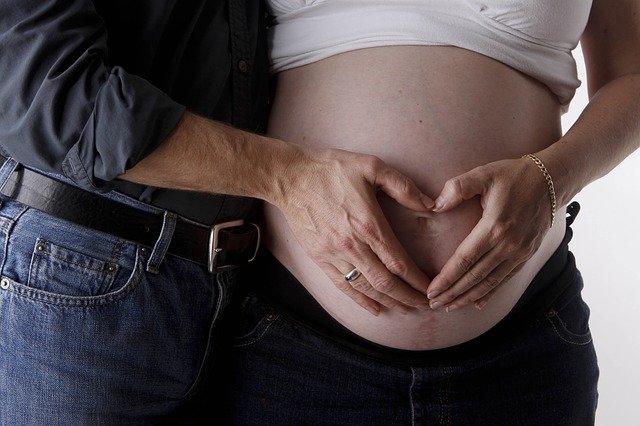
2. Oversleeping Causes Higher Heart Disease And Stroke Risk
Some people do think that oversleeping would relax our body and thus, lower our chances of having heart diseases and stroke but in reality, that's the direct opposite. According to research study carried out from the National Health and Nutrition Examination Survey, the study showed that people who are oversleeping have doubled the chance of having angina and are 10% more likely to have coronary heart disease than normal sleepers. The reason behind this, is that, sleep is normally ideal to give our heart some chance to rest, right? But too much of sleep i.e more than 9 hours might cause some damage to our heart, reason being that, the heart is not exercising i.e the heart is not pumping as much as required. According to a study carried out from the University of Cambridge, it was revealed that people who slept over 8 hours have about 46% more chance of getting stroke. From another study carried out by National Health and Nutrition Examination Survey revealed that oversleeping has a huge significance to the cause of stroke, as it showed that, people who slept more than 8 hours have 50% higher chance of getting stroke as compared to who sleep between 6 - 8 hours. It also showed that, people who slept more than 8 hours at night and are still having daytime drowsiness have 90% higher chance of getting stroke.
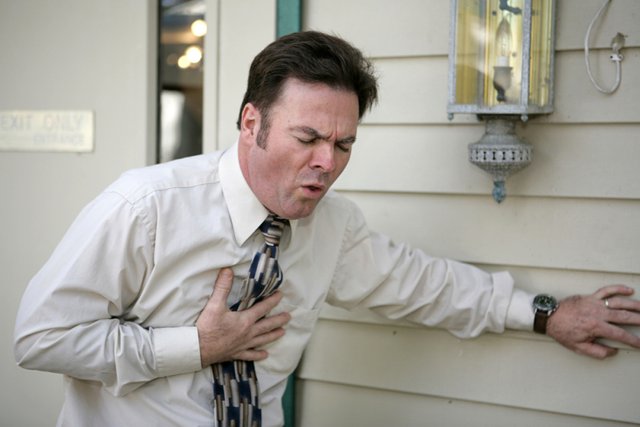
3. Oversleeping Affects Our Cognition Function
Oversleeping do affect our cognition function as we grow older. Oversleeping could decrease our cognition function and could also cause memory impairments. Research studies have shown that people who sleep above 9 hours have a more rapid decline in their cognition function as compared to people who sleep less than 6 hours, meaning that, oversleeping actually do affect our cognition function more than sleep deprivation. I'm not telling you guys to you guys to deprive yourself of sleep, sleep deprivation also do decline our cognition function but not as rapid as oversleeping. So, sleep within 7 - 9 hours, not more nor less.
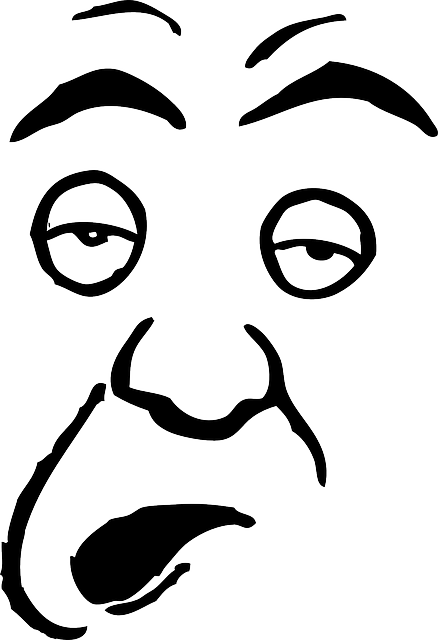
4. Oversleeping Causes Weight Gain
If we notice from our environment around us, you would notice that people who normally oversleep have more body weight than normal sleepers. A study from Canada, linked weight gain to oversleeping. Another study also revealed that, over sleepers are 21% more likely to become obese than normal sleepers. Proper diet and exercise, without proper sleep pattern would still lead to weight gain. You might want to ask why? The reason behind this, is that, when we over sleep, our body won't be able to use the energy from the food eaten, hence, it is stored in our body as fat which would lead to weight gain.
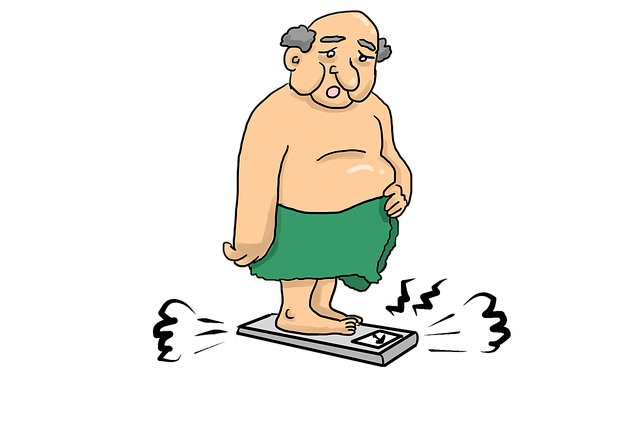
There are still so many other negative effects of oversleeping, but due to the fact that we still have much to understand about sleep, I would leave some links for those of you who wants to know the other negative effects of oversleeping. Link 1 and Link 2.
I know some of you would want to know how to overcome oversleeping, you guys would have to continue reading because, the ways of overcoming oversleeping is also the same way of getting a good night sleep, which would be discussed later.
Let's Now Talk About Microsleep
Have you ever felt tired and tried studying or watching a movie or doing some monotonous activity, like driving, and before you know it, you get a sudden head jerk and you can't remember what happened some few seconds ago? You just had a microsleep. Microsleep is an involuntary and momentary short episode of sleep lasting from about a fraction of a second to about a minute. "Involuntary", we normally are not in control of microsleep and funny enough we are not even aware of it, it is the sudden head jerk that might give us a clue that we just had a microsleep. The brain normally doesn't remember that kind of sleep because of how short it usually is. "Momentary", microsleep is usually a very short episode of sleep not lasting up to 2 minutes, because if it lasts up to 2 minutes, then our brain might actually remember it. According to Professor, Jim Horne;
Sleep has to last beyond a minute or two for your brain to remember it. Source
I think we all know this obvious cause of microsleep which is fatigue. Anytime we experience microsleep, we are usually kinda of exhausted and yet don't want to give our body and brain some rest, and that's why the brain and the body involuntary give in to microsleep. Microsleep is also caused by sleepiness, when we are sleep deprived, we normally have microsleep. The chances of having a microsleep increases whenever we are feeling sleepy or doing something monotonous like driving, watching something on the TV/phone or studying. And lastly, our biological clock which is called Circadian Rhythm plays a role in the cause of microsleep. Our body normally feel more sleepy at sometime within the day. For example, we feel most sleepy at night between 2 - 3 am and most sleepy during the day between 2 - 3 pm, so if you are driving or doing some monotonous activities between these periods of time, you are at a higher chance of having a microsleep as a result of our biological clock, circadian rhythm.
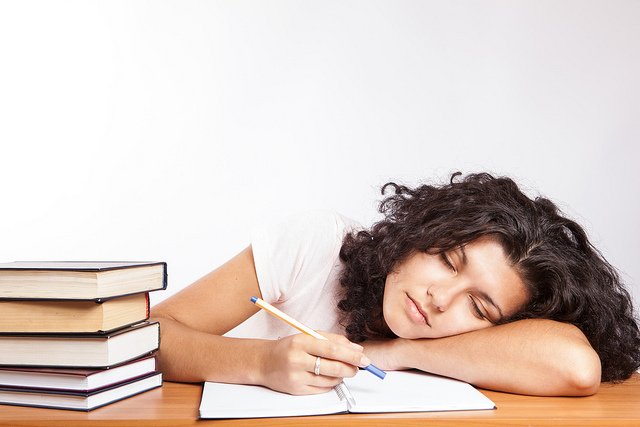
What Happens In Our Brain During Microsleep
Sleep is a basic necessity that the body and the brain needs to function properly, when we are fatigued out and sleep deprived for a long period of time, our brain would just shut down for some few seconds, because it's not functioning properly, that's why we don't normally remember our microsleep. For example, haven't you noticed that a phone of 1gb RAM would automatically restart when it has not been switched off or restarted for days and is under too much pressure. Same thing happens to our brain, when we don't give it enough rest, it kinda of shut off for some seconds. From a research study in the Neuroimage journal, it was revealed that some part of our brain lose the battle of staying awake and some other part of our brain are victorious to the battle during microsleep. In other words, it means that some part of our brain shuts down and some other part are still awake. During a microsleep, our thalamus, a part of our brain which is responsible for regulating our sleep, have reduced activities or in other words, shuts down. While the other part of our brain which is responsible for sensory processing and paying attention have increased activities or in other words, are fully awake.
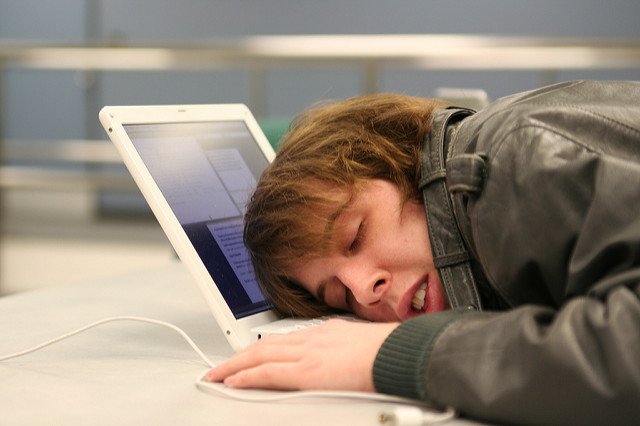
Is Microsleep Dangerous
Microsleep is very very dangerous, and some might ask, is having a microsleep while watching a movie dangerous? I'm not talking of such situations, take for example, you have a microsleep for about 10 seconds while driving, that's enough time for you to get into an accident by either crossing lanes or passing the red light. Or you are in factory and you have a microsleep for about 15 seconds, do you know what hazard you might cause. Microsleep have been known to be responsible for some major disasters in human history, such as the Exxon Valdez oil spill, Space Shuttle Challenger explosion and Chernobyl nuclear explosion and many more.
A survey carried out by U.K road safety charity brake, according to the research, 45% of men and 22% of women admitted to microsleeping while driving. This is an alarming high rate. Many car accidents, may be due to microsleep and a small study also showed that night shift workers are more likely to get into car accidents than day workers, due to microsleep. It is estimated that about 20% of car accidents are sleep-related and Professor Jim Horne is of the opinion that drivers have no excuse, according to him;
Sleep doesn't come from out of the blue. You can't be driving along alert one minute and falling asleep the next. There's always adequate time to realize how sleepy you are. Source.
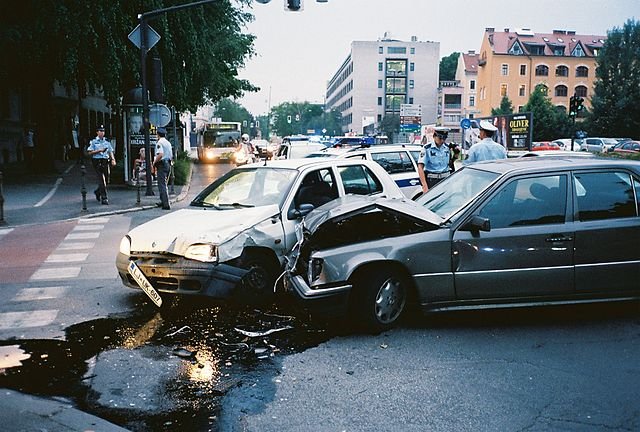
Since we now know just how dangerous microsleep is, the question next would be, how can it be prevented? It's simple, first you need to know that, if you are sleep deprived or completely wiped out and also if you re having signs of microsleep such as a sudden jerk of the head, slow frequent blinking, not being able to recall what happened seconds ago and many more. If you have experiencing such, take about a 30 minutes break and drink a cup of coffee. It takes about 20 - 30 minutes for the caffeine in the coffee to kick in, so during this period, you can take a power nap for about 20 minutes, although short but it is very good way to feel refreshed. Make sure it doesn't exceed a 30 minutes nap because if it does, you would be more sleepy and less refreshed because you must have entered into the deep stage of sleep, and for you to feel any better, you would have to complete a full sleep cycle which you know takes about 90 minutes. So ensure you nap for about 20 minutes, relax for 10 minutes and by then the caffeine in the cup of coffee should have kicked in, so you can go on with your activity safely.
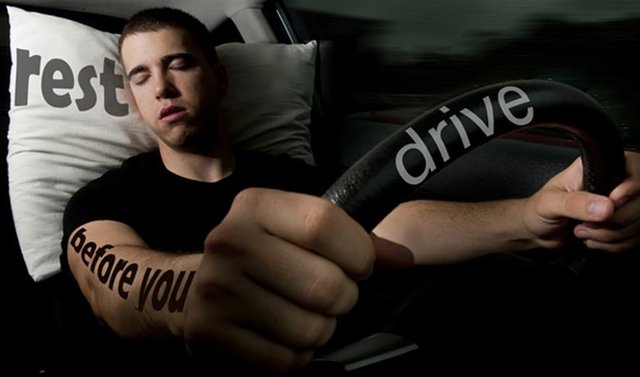
Does Sleep Deprivation and Drunkenness Have Similar Effect On Our Brain?
Yes, sleep deprivation and drunkenness have similar effect on our brain. A sleep deprived individual is like a drunk individual, their level of concentration, communication, and their memory and reaction ability are similar. A sleep deprived individual behind the wheel is like a drunk individual behind the wheel, the only difference is that the drunk individual is actually committing an offense and the sleep deprived individual isn't, how really unfair. You may I want to ask me why so? I would answer that question with a quote from Dr Itzhak Fred;
Inadequate sleep exerts a similar influence on our brain as drinking too much. Yet no legal or medical standards exist for identifying overtired drivers on the road the same way we target drunk drivers. Source
According to a research study from the David Geffen School Of Medicine at the University of Los Angels, California (UCLA) and Tel Aviv University in Israel, revealed just how bad the effects of sleep deprivation are and how it could cause memory lapses, distorted visual perception, slow reaction and even cause communication problems. When we are sleep deprived, we get very weak and tired, and this weakness and tiredness affects both our body and brain. We would focus on our brain for this article. When we are sleep deprived, the neurons in our brain, let's be more specific, the neurons in our temporal lobe, which manages our visual perception and visual memory gets slower as we get more sleep deprived. Our visual perception and visual memory is what helps us to translate what we see, i.e it's what helps us to different object and colors. For instance, you are driving and you see the red light, you would stop, right? But when an individual who is sleep deprived, his/her visual perception and visual memory becomes very slow, hence, it becomes harder for such an individual to identify a red light from a yellow light, which is similar to what a drunk individual goes through when he/she is behind the wheel. Well, according to Yuval Nir of Tel Aviv University.
We were fascinated to observe how sleep deprivation dampened brain cell activity. Unlike the usual rapid reaction, the neurons responded slowly and fired more weakly, and their transmissions dragged on longer than usual. Source.
Also, according to Dr Fred
The very act of seeing the pedestrian slows down in the driver’s overtired brain. It takes longer for his brain to register what he’s perceiving. Source.
According to a studywhich showed that sleep deprivation has similar effect on our brain as drunkenness. The average legal limit for drivers is a BAC(Blood Alcohol Concentration) level of 0.04%. If an individual is without sleep for more than 17 -19 hours, such an individual would have a BAC level of 0.05% and if he/she she stays longer without sleep, his/her BAC level would reach a BAC level of 0.1%. What this simply means, is that, an individual who hasn't slept for over 19 hours is legally incapable of driving, but there is no current law for that yet. According to National Sleep Foundation, there are usually an average of 100,000 car crashes each year which is caused by sleep deprived drivers. Most countries and states put more or even all emphasis on drinking and driving and neglect sleep deprivation and driving which seems to cause even more accident than drinking and driving.
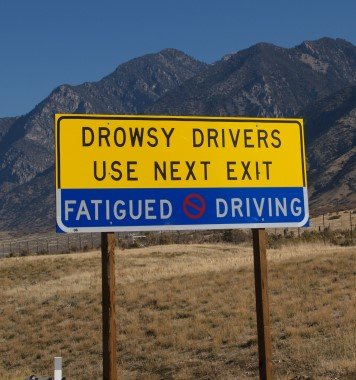
In our present generation, the need for sleep has reduced drastically. Having a 7 - 9 hours sleep is now seen as a sign of weakness or let's say as a sign of lack of desire for success. There's that assignment, that test, that project, that takes away our valuable sleep time. I can still remember my school days when some students brag about doing an all-nighter, and those that didn't are seen as lazy and dull but actually they got better grades, but in the eyes of those who don't know their grades, they were lazy and dull. I cannot over emphasis the fact that, having a good night 7 - 9 hours sleep is essential for our general well-being.
This article is already too lengthy and I still got lots and lots of stuffs to share with you guys about sleep, such as, sleep paralysis, jet lags, why it feels so difficult waking up, ways of getting a good night sleep and lots more. So I guess, this is not the final edition of Understanding Sleep Better(smiles).
Till I Come Your Way Next Time, Stay Safe And Sleep Well(smiles).
Thanks For Reading
References
Ref 1 | Ref 2 | Ref 3 | Ref 4 | Ref 5 | Ref 6 | Ref 7 | Ref 8.
I'm a proud member of @steemstem

I overslept just trying to read whole this
Hahahaha, funny you. I know it's quite lengthy that's why I'm having different editions. The third edition would come out soon.
Thanks for reading through(smiles) @amirl
Wr are waiting for a conscise edition
This post has been voted on by the SteemSTEM curation team and voting trail in collaboration with @utopian-io and @curie.
If you appreciate the work we are doing then consider voting all three projects for witness by selecting stem.witness, utopian-io and curie!
For additional information please join us on the SteemSTEM discord and to get to know the rest of the community!
Interesting. Sleep is definitely a key factor risk for a number of health concerns. I recently read a book which mentioned that disrupted REM sleep cycles may, in fact, be one of several leading indicators for Alzheimer’s onset. Obviously more research needs to be conducted regarding this topic but thought it was interesting in the context of your article
🤙🏽
Posted using Partiko iOS
I'm glad you found this article interesting @conradsuperb
I'm averaging 6 hours or less, I think I may need to sleep more.
Smiles, in this modern era, that's the average hours people sleep. What I would recommend is that, you make sure you get a siesta during the day lasting about 90 minutes and you would be just fine. And that's why Biphasic Sleep Pattern, is the best sleep pattern.
Thanks for coming around
Congratulations @menoski! You have completed the following achievement on the Steem blockchain and have been rewarded with new badge(s) :
Click here to view your Board of Honor
If you no longer want to receive notifications, reply to this comment with the word
STOPTo support your work, I also upvoted your post!
Do not miss the last post from @steemitboard:
Hi @menoski!
Your post was upvoted by Utopian.io in cooperation with @steemstem - supporting knowledge, innovation and technological advancement on the Steem Blockchain.
Contribute to Open Source with utopian.io
Learn how to contribute on our website and join the new open source economy.
Want to chat? Join the Utopian Community on Discord https://discord.gg/h52nFrV
So, how do we explain fasting? I think there are some people who eat once every 24 hours and still is healthy as a horse.
Although according to your table, the elderly population were supposed to sleep for 7 to 8 hours a day, in reality, they probably slept like 5-6 hours or lesser. Their melatonin production is not that good and they will be unable to resist the effect of cortisol which is a type of hormone that is responsible for waking us up (that's why we felt moody in the morning, our cortisol is high!).
Regarding depression, although sleep disorder is one of the criteria from DSM-V to diagnose depression, it can be either hypersomnia or insomnia. Insomnia can be either it's difficult for them to fall asleep or it's difficult for them to stay asleep thus early awakening. If the article that claimed sleep deprivation is a good way of treating depression, it would be for people who were hypersomnia. However, it would be difficult since, the type of sleeping disorder can sometimes, varies. The best way is to consult a psychiatrist and get a treatment.
What is your opinion regarding sleeping pattern in a day? For example, Nikolas Tesla is well known for his aggressive style of polyphasic sleep. He will sleep for 20-30 minutes for every 4 hours so that he can earn extra hours per day compared to the general population. This sleeping technique was also used by Leonardo Da Vinci. Do you think it is a good idea to distribute your hours of sleep in a day into a few naps which will total up to the same number of hours or less?
Hmmmm, those people are pretty few and weird, can you eat once a day, for me I know I just can't, I won't be able to function properly, and I think majority of the world population is also this way.
Yea, it is what is recommended for their well-being. They might not be able to sleep that much, but that doesn't change the fact of what is actually proper for their well-being.
For me, that's hardly possible, for students and workers, because they won't be able to meet up that every 4 hours nap, and missing one would be very very bad. What I would advise is the Biphasic Sleep Pattern, which I consider is the best sleep pattern. You have about 5-6 hours night sleep and siesta lasting up to 90 minutes within the day.
Thanks for coming around @conficker
Thanks for the information on sleep. Very informative. Have you every heard of the ketogenic diet?
I'm glad you found this article very informative @drstevesmiley
I haven't heard of that diet, but I'm sure would do read on it
Really good post @menoski! It's nice to see someone who posts about sleep... And specially about oversleeping! It isn't something you find considerably around internet. Wish you tons of succes! Peace...
I'm really glad you liked the article @sajunu
Oversleeping is really overlooked. Thanks for good wishes, I appreciate